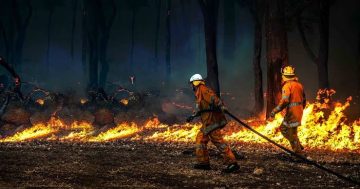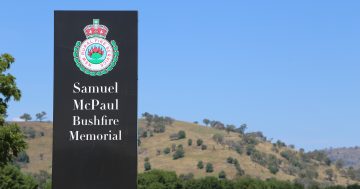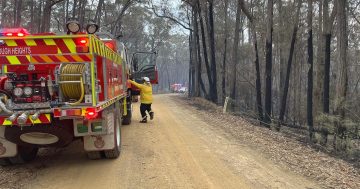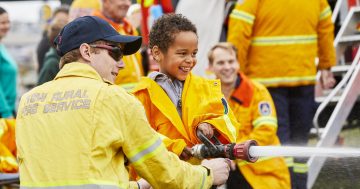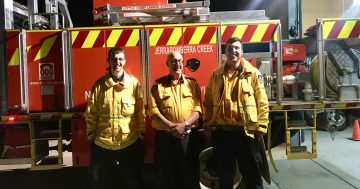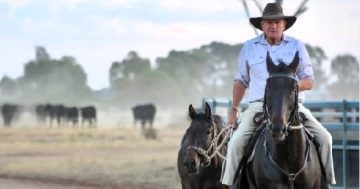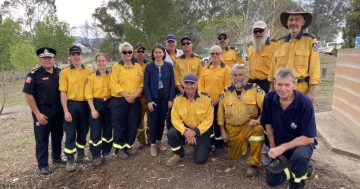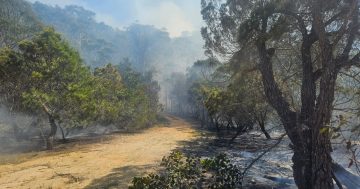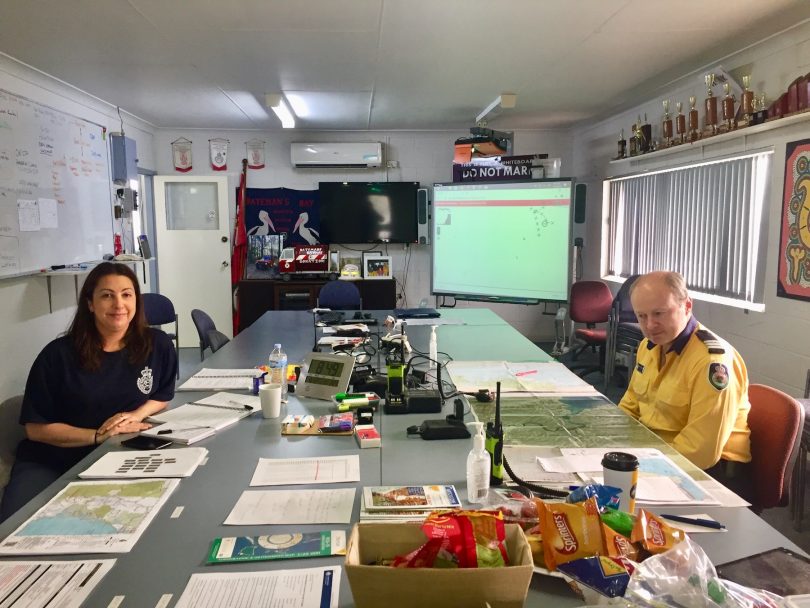
Maria Moreto, Brigade Secretary and Ashley Blackman, Captain of Surf Beach Station, running the control centre at Batemans Bay
Yes, there is a fifth season in Australia. Hard to pin down, it can commence in August and can run into March.
It’s bushfire season, and it has its own set of particulars and character: dry conditions, loads of leaf litter and fuel, little rain, strong winds.
Anytime from August onwards, during a dry spell, people start to get twitchy; they’re talking to you with one eye on the sky, on the wind direction, they’re remembering where the passport is kept.
People in the bush are getting better each season at preparing and packing an emergency bag, a box of family photographs, important papers, arranging animal shelter and transport, clearing around their homes, filling buckets with water.
The Currowan Fire (or fires) currently burning north of Batemans Bay has seen many people evacuated to centres at Mackay Park in Batemans Bay as well as Ulladulla and Canberra.
People are leaving their homes at the urging of police and fire crews, bundling belongings and animals into cars, caravans and trailers and heading to managed evacuation centres.
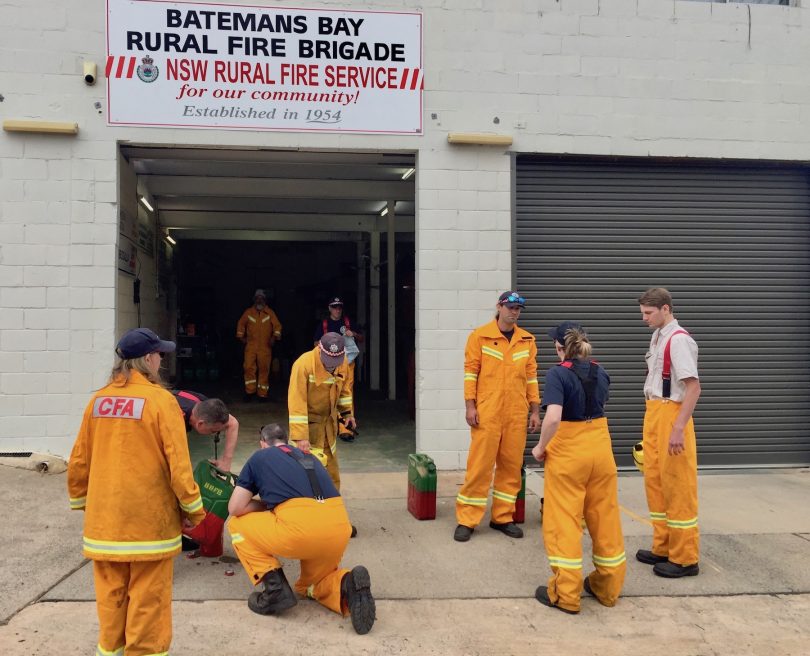
Crews fill up with lighter fluid in case they have the dangerous job of lighting break fires and back burning
Fire crews from our NSW Rural Fire Service (RFS), Victoria’s Country Fire Authority (CFA) and other agencies such as the State Emergency Service (SES), Forestry Corporation, Essential Energy, and Ambulance teams from both NSW and Victoria are all working together.
Fresh and energetic volunteers and workers are moving in to relieve crews that have been on the ground since last Wednesday. Brave souls are taking advantage of the calmer weather to undertake back burning and clearing, create lines of containment.
Many of the firies I spoke to were full of appreciation to the community for their support.
“We’ve had food and coffee and hugs and even kids’ drawings,” says a smokey-faced man.
Ashley Blackman, heading up the Durras Section says, “we’re all on 12-hour shifts currently, back burning along the Kings Highway and clearing fallen trees and debris on the Princes Highway, trying to make it safe”.
A fresh strike team is arriving from Bega picking up vehicles in Mogo. Many other crews from Jindabyne, Perisher and Bombala are in town, and teams from Yarrawonga, Baddaginnie, Taggerdy, Broadford have banded together. Working on containment lines, most of these extra crews are in town until Wednesday at least.
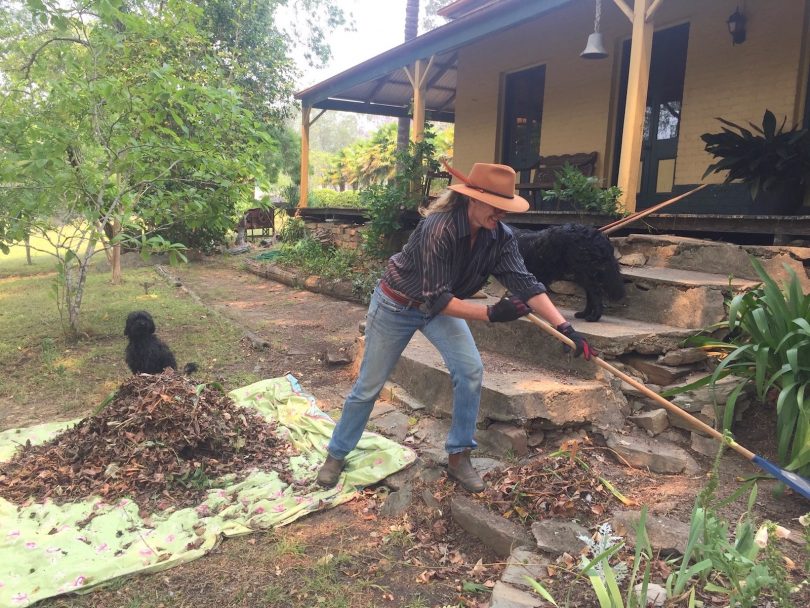
Eurobodalla Mayor Liz Innes has spent several days cleaning up and preparing around her house at Runnyford.
“Of course what we really need is rain, but we’re working hard to keep things safe. We can’t stress enough to everyone to be prepared! Have your bushfire plan ready, prepare your property. It makes it much easier for fire crews if people have prepared around their homes and land” says Captain Blackman.
Most of the crews fighting this fire are volunteers. Ashley Blackman encourages people to consider volunteering with their local RFS or CFA in Victoria. “We have actually had a few people register to volunteer with the RFS because of these fires. We will always welcome more people.”
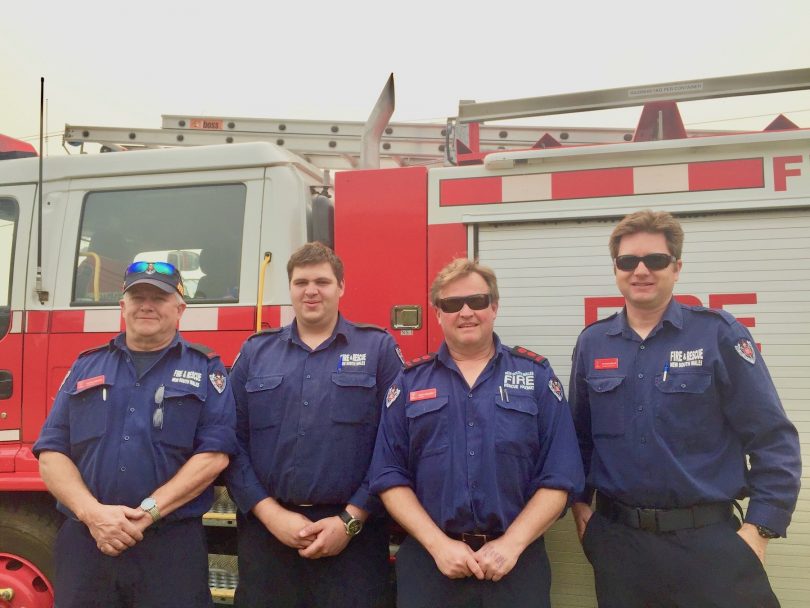
New crews arrive from Bombala, Jindabyne and Perisher – Peter Heward, Costa Dracopoulos, Cpt Garth Willmott, Matthew Dewaard.
If you’d like to support our firefighting volunteers there are a number of ways, as outlined on the RFS website.
A number of funds which have also been established to support those affected by the bush fires. These include:
- Australian Red Cross Disaster Recovery and Relief
- Salvation Army Disaster Appeal
- St Vincent de Paul Society Bushfire Appeal (NSW).
Many people are choosing to show support to our volunteers. While brigades are provided equipment to protect the community, donations assist them deliver additional services:
- NSW RFS Donations Page
- Make an online donation to the NSW RFS Trust Fund or a participating brigade.
There’s also a wide range of community groups which are providing support to fire-affected areas, including Blazeaid and the Port Macquarie Koala Hospital.
Get your bush fire plan survival guide here.
You can volunteer your time and assistance to your local RFS by visiting the RFS website here.
To stay up to date with all NSW bushfires, check the NSW RFS website, listen to your local radio station, or call the NSW RFS Bush Fire Information Line on 1800 679 737.
For information on road closures, check Live Traffic NSW.
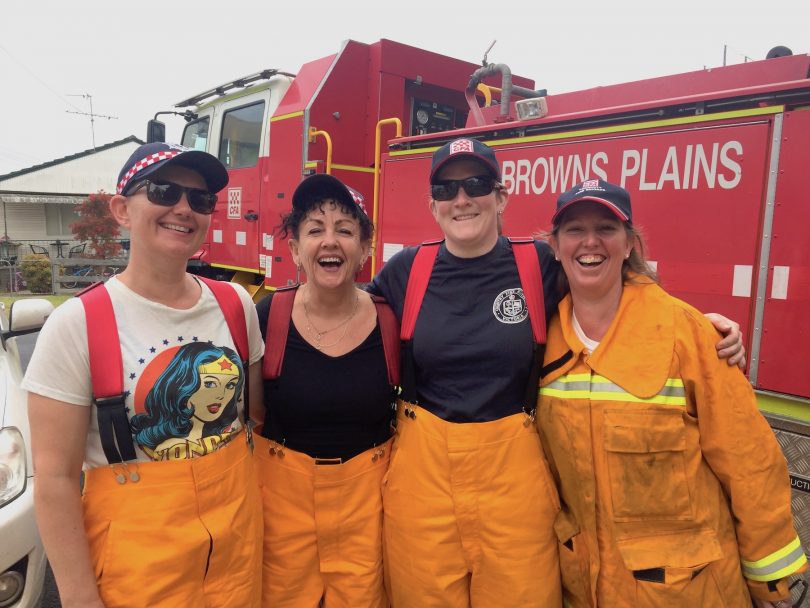
Wonder women – Louise Daly, Jenny Ricardy, Shannon Larkin, Kellie Fielder CFA crews from around country Victoria arrive on Sunday







